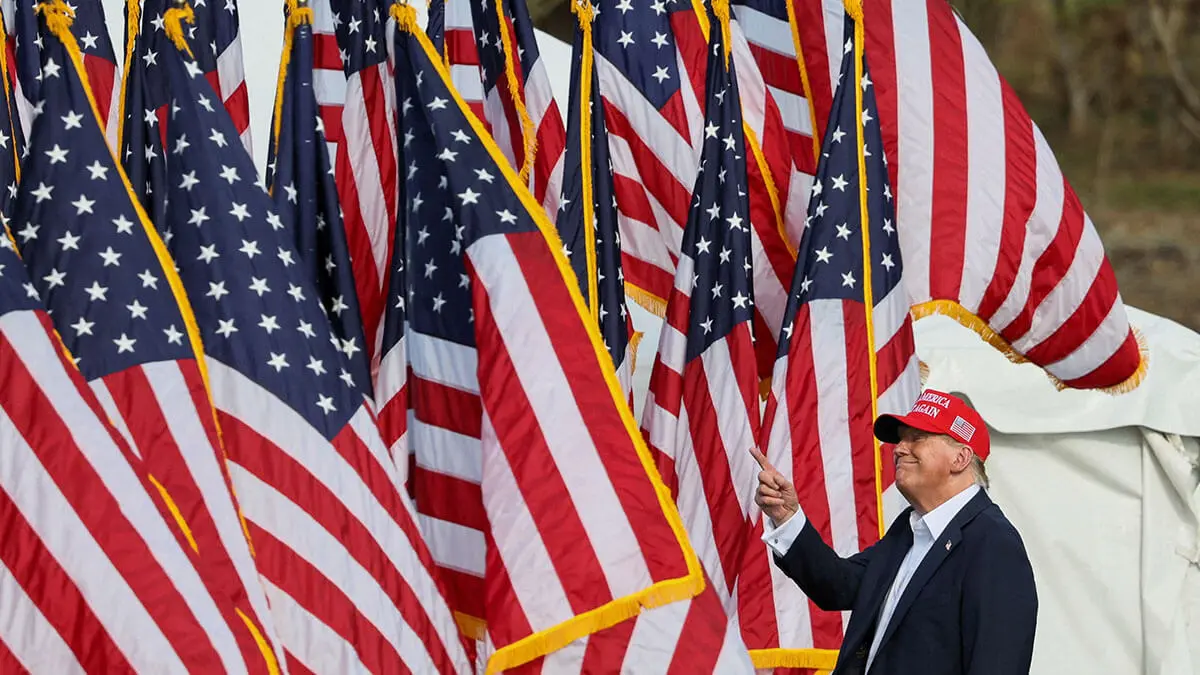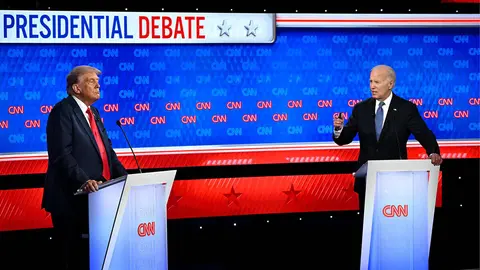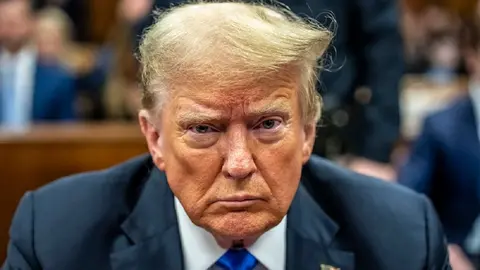A crack in democracy: Trump's impoundment

Trump is armed with a clear agenda against the foundations that sustain the US government. This institutional crisis has been exacerbated by President Biden's performance during the last televised political debate, which has only increased Trump's chances of winning the presidency again.
But what does a Trump comeback mean? When I left the CIA, I had just completed a non-political rotation in the White House under the Trump presidency, serving on the Presidential Daily Briefing team. This team is responsible for briefing the White House and senior leadership on global developments of geopolitical, economic and national security interest. It functions as a compass that tries to be as objective as possible.
It is not the much-talked-about foreign policy decisions that I find most problematic - such as imposing a 10% tariff on all goods, a higher tariff on Chinese goods, pressuring Europe on NATO contributions, cutting aid to Ukraine and supporting conservative social goals - but the plans to reshape the foundations of the US government. Because consequences come first, and my concern revolves around the cause.
My time in the White House, as a member of the CIA, made me a participant in and witness to several notable events that underscore the importance of an impartial civil service on an ongoing basis. A non-politicised one to advise a president's decisions. The advice impacts US policy decisions such as the launching of missiles into Syria following Assad's chemical attacks, targeting Syrian military facilities in response to the use of chemical weapons against civilians. I was also in touch with advice to the US government and allied countries following the attack by Russian spies on Sergei Skripal and his daughter Yulia in Salisbury, UK. However, against all recommendations Trump put a possible invasion of Venezuela on the table, with serious military plans for a military intervention under deliberation.
In all these processes the advice he provided with other independent colleagues was undermined by Trump. He was responsible for lobbying the Department of Homeland Security to cancel immigration protections against the advice of the diplomatic and intelligence communities. We had to confront the Trump Administration's plans through which it wanted to end Temporary Protected Status (TPS) for half a million Central American and Haitian migrants, ending protections for many who had fled violence and faced possible deportation. These were not isolated incidents; many insiders have told similar stories of pressure to alter intelligence analysis.
What makes a second Trump term a potential democratic attack? It is the so-called Project 2025; a 22 million dollar initiative led by the Heritage Foundation that aims to implement a conservative agenda immediately after Trump's return. It plans to restructure at least 50,000 career civil servants as political appointees based on loyalty to Trump rather than professionalism or experience.
How important to understand in the face of what lies ahead that a meteorologist who tracks storms should not be influenced by the president's approval in the district that will be hit by the storm, and, simultaneously, an expert on North Korean ballistic missiles should have expertise on missile designs and how they work, regardless of who is in office and who the president meets with. This reshuffle, known as Schedule F, would allow for the replacement of qualified professionals with Trump loyalists. That is, by fans, rather than technicians.
All this could be formulated by what is an anti-democratic action figure called "impoundment". This is "impoundment" which gives the president control over congressional spending. It blocks Congress from accessing funds, thus overriding the authority of Congress. Indeed, this was put to the test during Trump's first term - leading to his impeachment - when he refused to use funds for Ukraine, even though it would have been approved by Congress in an effort to pressure Ukrainian President Volodymyr Zelensky to hand over incriminating evidence about the Biden family to Trump. This figure in his possible next term could affect through overhauling the Justice Department, ending FBI efforts to curb disinformation, reversing FDA approval of abortion pills and reducing media access to the White House.
What Project 2025 threatens is the balance of power. It is democratic control that is at stake and this situation could lead to an authoritarian style of government. While the country was already suffering from a deterioration in the separation of powers - legislative, executive and judicial - new threats to these powers could destabilise the balance of power. There is precedent for this: in a single term, Trump appointed 75% of the total number of judges that Obama was able to appoint in two terms, and three Supreme Court justices, tipping the balance in favour of a conservative-leaning, vindictive court. At this point, perhaps we should be asking ourselves questions such as what are the limits to protecting democratic values, the separation of powers and its representative institutions?
From conversations with friends in the Republican Party, it is clear that they are obliged to declare their full support for Trump, and that any deviation puts a target on their backs. This persecution of dissent and debate within the party is damaging in a two-party system, where difference of opinion is crucial.
The fabric of any democracy is more vulnerable than we realise. It is the foundations of building unitary values across ideological differences that enable a nation to succeed in the long run. Institutional integrity is at stake and this damaging uncertainty is becoming increasingly pervasive. Authoritarianism is not a distant exercise; preventing it is necessary by taking seriously the plans of those who want to undermine the concept of "Democracy" out of a thirst for power.
Björn Beam, expert on Geopolitics and Technology



